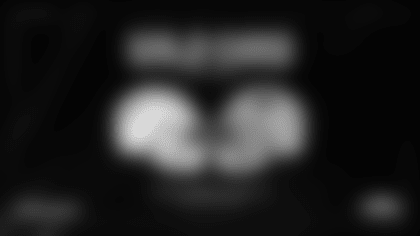BB: We've got a crash course going here on the Cowboys. A lot of film, a lot of time spent on these guys in the last 48 hours to try to get to know this team. [The Cowboys are] Well coached, very talented team. As I said yesterday, could easily be 4-0, just a couple plays away. They've really got a lot of good players. Scheme-wise, they do a lot of things that are difficult to prepare for, they give you a lot of different looks, they move their personnel around in a lot of different ways in all three phases of the game. They do some things that are pretty creative on offense, defense [and] special teams - a couple things that we haven't seen before that we'll have to try to get a good look at. I think this would be a lot easier team to prepare for if you were playing them twice a year and you kind of had a feel for some of the things they do and when they do them. We're definitely not there yet. We've got a lot of work to do this week. It will be a big challenge. This is a good football team - they're well coached, they do a good job, they have a lot of good players.
Q: Is there anything about Tony Romo specifically that makes him tough to defend?
BB: I think he does everything well - throws the deep ball well, short, intermediate balls, gets rid of it quickly, definitely doesn't hold the ball back there. He's not a guy that's going to take a lot of sacks. Gets it out quick, uses all of his skill players, is smart in terms of running run-pass checks. They do some things based on one look the defense gives they'll do one thing, if they get another look, they'll do something else. He obviously handles that pretty well. He's athletic, he can get out of the pocket, make some plays with his feet. He can keep some plays alive like he did in the Washington game on that third and 25 blitz or whatever it was. Redskins sent everybody after him, he scrambled around there for a couple of seconds, bought a little extra time and then chucked it down there to [Dez] Bryant. He can do things like that too. Very athletic guy that gets rid of the ball quick, has real good accuracy. He made a great throw to [Jesse] Holley there on the long pass in the overtime against San Francisco to set up that game-winning field goal. He's got a good touch on the ball down the field. He does a good job on screen passes. They throw a lot of screens, stuff like that. He's got a nice game.
Q: Is Rob Ryan doing a lot of the same things with the Cowboys that he did with the Browns defensively?
BB: There are some things. I think this is truly Rob's package, Rob's defense. I think there were elements of Rob in Oakland, there were elements of Rob in Cleveland. But I think this is really, the way he's got it set up, the way his calls are organized, I think this is really, totally his package.
Q: I know it's been a long time, but does having worked with Rob Ryan before, does that give you any insight about his approach?
BB: He'll approach it based on how he personally sees it and evaluates his personnel and how they match up against ours and so forth. I think we have an idea how structurally how he'll organize the game plan or he'll bring it all together. Now, specifically what that means, of course we're just guessing. I think we have an understanding of generally how he works, how Jason [Garrett] works, how Joe DeCamillis [works], basically what they do, we've played against those guys enough times as coordinators and head coaches, seen them do enough things. The specifics of it, that always changes from week-to-week. They do a good job of that. They do a good job of game planning, they change their scheme based on who they're playing. What we get and what they did last week are probably two different things.
Q: When you have a team like the Cowboys that you're not that familiar with, would you do any advance scouting or prep work the week before?
BB: Yeah, of course.
Q: Any more than usual? What does that entail?
BB: It entails people in our organization breaking down all their personnel and having that ready Sunday night when the game is over, when the Jets game is over. People breaking down their last however many offensive and defensive games that we want to evaluate - maybe it's the last four or maybe its two of the last four and two other ones, depending on which games we think are most relevant. We'll break down at least four games on them and sometimes more. We did our offseason scouting report on this team, we knew we were playing them the sixth week of the season. We were able to look at things that Jason [Garrett] did last year as the head coach and their personnel and so forth. I mean, it wasn't like we walked in here Monday morning and were like "Who are we playing this week? Let's go to work on them." Again, we spent all our time and energy at the end of the week last week getting ready for the Jets and preparing for that game. Once it's over, you turn the page. But other people in the organization have been working to get ahead and you have a lot of information ahead of you. You're processing it, like I said, really in the past 48 hours or so and going back over your notes and some previous work you've done on the team. But it's still a crash course.
Q: After the Jets game, a lot of guys talked about being able to successfully execute the four-minute offense. Aside from the obvious physical stuff, what are some elements of successfully executing a four-minute offense?
BB: Knowing what they're going to do or anticipating what they're going to do and then being able to execute what you want to do against it. The Jets have shown a number of different things in that situation and this particular time in the last game, we were able to get done, to a degree, what we wanted to do. We work on those situations every week - two-minute, four-minute, goal-line, short yardage, red area, end of the game plays, end of the half plays, no-huddle field goal, all that. That's part of our normal preparation. Now we're turning all that attention to Dallas so it doesn't really matter what happened last week. It's a whole new opponent and there will be a lot of things that will change.
Q: You mentioned that Tony Romo can make some plays with his feet. Is that something you can make work against him? In other words, he's so confident that he can make plays like that so he'll try to force things in there if he sees it.
BB: No, I don't think it works against him at all. I think if it's there, he's throwing it. He'll take the receivers. Where he can keep plays alive is if the receivers are covered or you jam a receiver, you have good coverage and there isn't anything there. Instead of throwing it away or taking the loss, he can keep the play alive and start a new play, if you will, a scramble play, a loose play. Sometimes that's him running but most of the time it's him finding somebody that can uncover. Like I said in the Washington game, was a good example, he took a play where there was really nothing, he had nobody to throw to and he was able to keep it alive for a couple more seconds and then make like a 35-yard completion to Dez Bryant and that led to the game winning field goal. He doesn't run just to run, he only runs if the play breaks down.
Q: What were your impressions of Dez Bryant coming out of college and now with the Cowboys?
BB: Big, strong receiver, he catches the ball well. He had a couple punt returns last year that went the distance. He can run, he can break tackles, he's good with the ball in his hands. Big target, I don't know how you could overthrow that guy - he's like a tight end. He's big, he's strong, he's got good speed, returns kicks, so he can do a lot of things.
Q: Is there any advantage to having dealt with the bigger receivers already this year with some of the receivers who have been on your schedule?
BB: Yeah, sure. It seems like we have one every week or more than one in some cases. I mean, look, through the course of the season or even through preseason, by the time you get through preseason you've probably seen the fast guys, the quick guys, the big guys, the run after catch guys, the guys that are real good blockers, crack blockers, things like that, the reverse guys. You play three or four games, you pretty much get a sampling of pretty much all those receivers. That's good for us. We see that in practice too. We see guys with different styles of route running and same thing for our offense. Our receivers see different types of defenders, quick guys, the same. Those matchups, they definitely change and you certainly learn that one thing that works against one player, there may be a better way to attack a player who has a different set of skills. Equally good player, but it's a different matchup. We emphasize that a lot. That transcends the entire, every play, whether it's pass protection, run blocking, kick coverage, holding up the gunners, vicing the gunners. It's the same thing. You block different types of athletes or go against different types of athletes who are blocking you and you learn individually what your strengths and weaknesses are and how you can deal with one guy versus how you can deal with another type of player.
Q: BenJarvus Green-Ellis seemed to have a lot of yards after contact last week. Has he added anything to his game in terms of elusiveness or is that just him putting his shoulder down?
BB: I think he's been pretty consistent at doing that. He's always been a good guy that gets yards after contact, has a good forward lean, has good balance, he's strong, he's not an easy guy to tackle. He runs at a good pad level for the most part. He's made yards after contact going back to Mississippi. I mean you see plenty of those in college too.
Q: From what you've seen from Dallas defense, how are they able to be so stingy against the run?
BB: They have a lot of good players. They have a good scheme. They play good technique. They're strong, they're physical up front and they're fast. They don't give up many plays. You look at a lot of plays and the play starts you think, "There's a hole, this looks like a pretty good play' and all the sudden four guys hit him for a two-yard gain. They close very quickly. [Anthony] Spencer and [DeMarcus] Ware on the edge, I mean they're a problem. The inside linebackers especially [Sean] Lee runs well. Their defensive linemen are active. They really run well. They have good team speed. They haven't given up very many plays period - run or pass. That one of the big reasons, they converge on the ball so quickly. They have a lot of team speed - it's the fastest team we've played this year. Like I said, you look at plays and you stop the film and you say, "Looks like this is going to be a good play" and then it just collapses. They do a good job running the ball and they have a lot of fast guys.
Q: How do you prepare for that kind of speed in practice? What can you do to prepare for that kind of collapse?
BB: They just get there quicker than a lot of other people, that's all. Every team we play, they're chasing it too. These guys are just faster, they just get there quicker. Obviously every team has its weaknesses, hopefully, that you try to attack. We'll try to attack these guys, just like we do any other team. One thing that's hard to do, I'm just saying, is out-run them. There aren't many guys that are just going to take the ball and take off that they can't catch. They track everybody down.
Q: How do you feel about the production of your running game so far this season?
BB: We've had our moments.
Q: They had their moments last week. Do you feel like it's coming along more?
BB: We had some good production last week but that doesn't really make any difference, we're playing a different team this week. We'll see how we do against Dallas. Whether we did or didn't gain yards last week, it doesn't really matter, it's whether we can gain yards against Dallas.
Q: What areas have you seen BenJarvus Green-Ellis improve in most in his time here?
BB: Special teams.
Q: How so?
BB: He didn't do much of it in college and I didn't think he was really very good at it. It was probably one of the reasons why he didn't initially make our team. He improved in that area significantly. I think he does a real good job for us in the return game and in the coverage game when we've asked him to do it. That's actually led to him getting more opportunities offensively. He's done a good job offensively. We've probably used him less now in the kicking game than we did last year or the year before. His improvement in the kicking game got him on the roster, it got him to the game, it got him opportunities to run the ball and that got him more playing time on offense. I know that probably doesn't make any sense but that's really the way it works. You're not the starting running back or you're not a starting whatever if you can't play in the kicking game, then it's hard to get those players active on the game day. If you do play in the kicking game that leads to more opportunities offensively or defensively. Rob Ninkovich is another example of a player who really earned his playing time in the kicking game who then became a high defensive play time player. BenJarvus is a good example of that on offense. I'd say his pass protection certainly has improved from college, as well as his overall route running and understanding the passing game. He had some experience at that anyway. I think special teams is an area where he's made a big jump since he's been here.
Q: Brandon Spikes had some extended playing time the last couple of weeks. What has he done well with that playing time and what does he need to do to improve?
BB: He missed so much playing time, practice time and play time during training camp and preseason so these last three weeks kind of have almost been like his preseason, unfortunately. I think that practicing on a daily basis, playing on a regular basis that that's what he needed to do. I think he still has a long way to go. He's probably where a lot of our players were in September, just because he missed all of August. His timing, his overall reaction, his execution, all those things, they're OK, they are coming along. I'd like to think they'll be better now that he's starting to get into game shape and reacting like you have to react on a football field, both mentally and physically. He's doing some good things and he's still got a long way to go. The fact that he's been out there finally on a consistent basis to practice and play - nothing has helped him more than that.
Q: Back to the special teams point you were making earlier about players starting there and then getting more time elsewhere. Is the playing time on offense or defense because they're active on game day and have the opportunity to get chances or because you're rewarding them for good play on special teams?
BB: It's not rewarding them - they earn it. If you're an offensive or defensive coach, you have your 20 guys or whatever it is at the game. You don't have much depth at any position, you know what I mean. If you have seven offensive linemen or a couple tight ends or three or four backs or five receivers, whatever it is, it's not like you have an unlimited number of guys. To take a player to the game who is let's just say is a good offensive player and he can do a couple of things for you that you like as an offensive coach. From a team standpoint, you just can't afford to take a player to the game that's maybe only going to play a half a dozen plays on offense who can't contribute in the kicking game. Maybe you can take one of those guys to the game but you can't take very many because who is going to play on special teams? If you're only going to get a handful of plays out of him on offense and defense it's just not worth it. So you take a player who is going to play in the kicking game who will play 15 or 20 plays in the kicking game. OK, so now he's at the game. So now you're the defensive coach, 'I know that 'Joe' is going to be at the game, so what can I do with him? Alright, well maybe I can use him on this or I can use him on that, but I know I have him and I can use him. Whereas this other guy, I have plans for him but he's not going to be active. What's the point? We just can't get him there. We have to wait until he can get an active spot on the roster whether it's an injury or he performs better and does other things or whatever it is.' As an offensive or defensive coach, there is a certain group of players that are going to the game because of their value in the four major phases of the kicking game - kickoff, kickoff return, punt, punt return. Those guys that are definitely going to the game to play on those teams, then as an offensive or defensive coach you can plan for that guy to be there to do whatever role you want him to do on offense or defense because you know you have him.







































